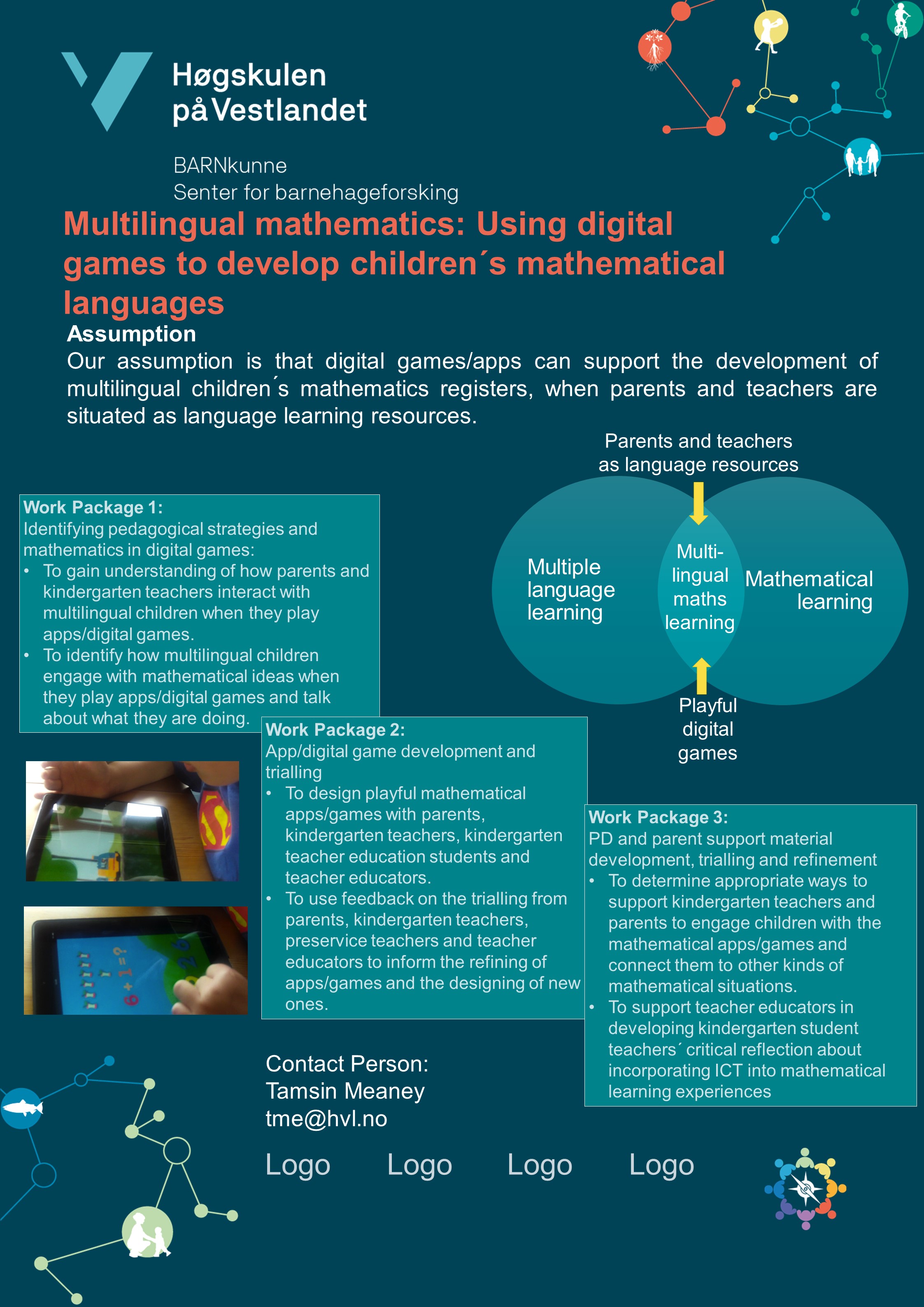
Multilingual mathematics: Using digital games to develop children's mathematical languages
KINDknow research area 4
The aim of project is to determine how the affordances of digital games can be used to support multilingual children’s possibilities to discuss mathematical ideas in all of their languages.
To achieve this, parents, kindergarten teachers, teacher education students, and teacher educators are working together to investigate how to develop and integrate playful mathematical digital games into learning opportunities provided at home and in kindergarden.
Information will be collected through collaborations with parents, teachers, teacher education students, and teacher educators: as input for the design stage; in the trialling of digital games in some kindergardens; from the implemantation of the apps/games across the kindergardens and in the parallel studies being undertaken elsewhere in the world. A multi-modal analysis of the data will be undertaken.
This project includes several sub-projects:
- Sub-project one: Identify pedagogical strategies.
- Sub-project two: Designing and trialing mathematical digital games.
- Sub-project three: Develop support for kindergarten teachers and parents.
Members
Tamsin Meaney, Team leader
Troels Lange, HVL
Mona Karabaschi Vee, HVL
Dorota Lembrér, HVL, PhD student
Silje Christiansen, HVL, PhD student
Tamsin Meaney, forskergruppeleder
Troels Lange, HVL
Mona Karabaschi Vee, HVL
Dorota Lembrér, HVL, ph.d.-student
Silje Christiansen, HVL, ph.d.-student
Publications
Fosse, T., Lange, T., & Meaney, T. (2020). Kindergarten teachers’ stories about young children’s problem posing and problem solving. In I. Erfjord, M. Carlsen, & P. S. Hunderland (Eds.). Mathematics Education in the Early Years Results from the POEM4 Conference, 2018 (pp. 351-368). New York: Springer.
Lembrér. (2020). Parents’ valuing of mathematics for young children. In M. Carlsen, I. Erfjord, & P. S. Hundeland (Eds.), Mathematics Education in the Early Years: Results from the POEM4 Conference, 2018 (pp. 403–420). Cham: Springer International Publishing.
Severina, E. & Meaney, T. (2020). The semiotic resources children use in their explanations of hypothetical situations. In I. Erfjord, M. Carlsen, & P. S. Hunderland (Eds.). Mathematics Education in the Early Years Results from the POEM4 Conference, 2018 (pp. 177-198). New York: Springer.
Lange, T. & Meaney, T. (2019). What the mathematics in the puzzles and handicrafts in 1920s Danish children’s magazines tells about childhoods. Contemporary Issues in Early Childhood, 20(4), 294-308.
Fosse, T., Lange, T., Lossius, M. H. & Meaney, T. (2018). Mathematics as the Trojan horse in Norwegian early childhood policy? Research in Mathematics Education, 20(2), 166-182.
Lange, T. & Meaney, T. (2018). Talking about mathematics in two languages: Can parental views inform the development of digital games for young children? Nordic Studies in Mathematics Education, 23(4), 203-223.

